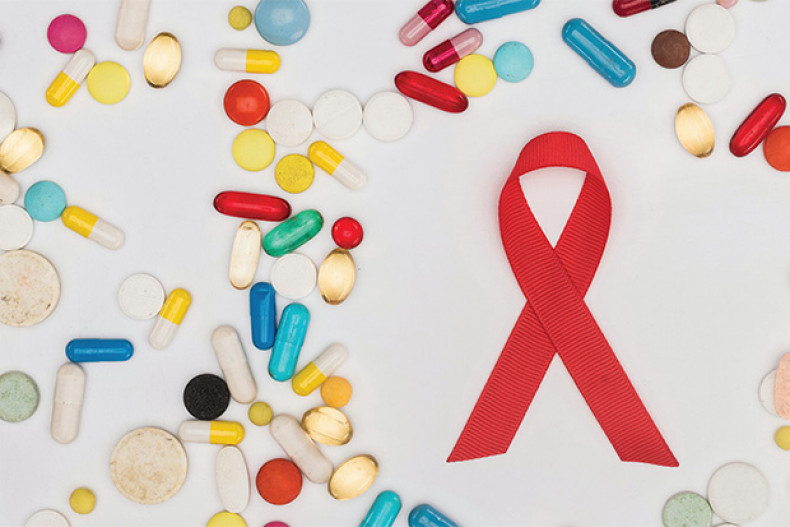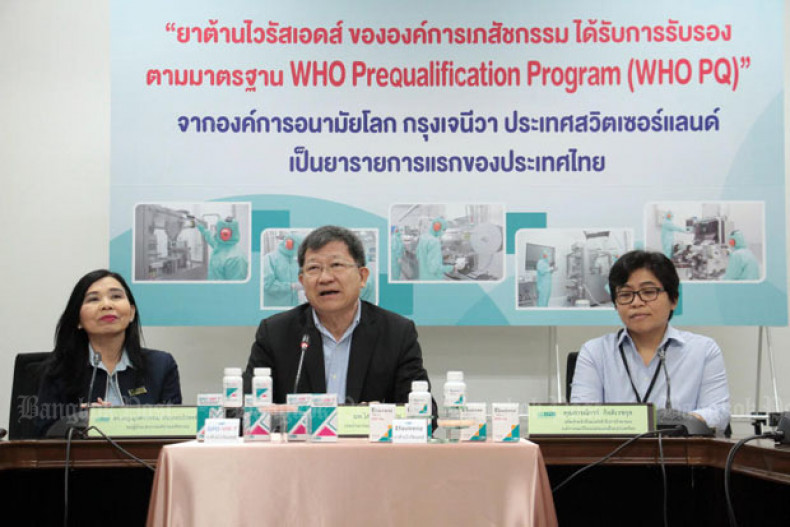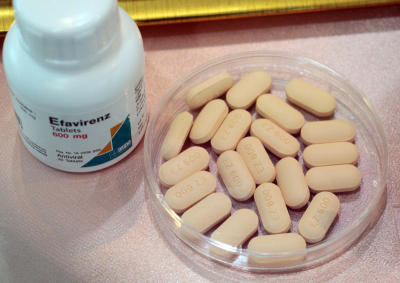Showing 1 - 10 of 10
WHO certifies Thai facility for HIV medication
News, Published on 05/01/2025
» The World Health Organization (WHO) has certified the Government Pharmaceutical Organization's (GPO) facility in Pathum Thani under the WHO Prequalification Programme (WHO PQ) for manufacturing the antiretroviral drug Efavirenz.
Sequence African genomes for Africa and the world: scientist
AFP, Published on 11/02/2021
» PARIS - A $4.5 billion initiative to sequence the genomes of three million Africans would not only benefit a continent long neglected in gene-based healthcare, but advance understanding of genetic disease worldwide, the project leader told AFP Wednesday.
Stop Aids tests in workplace
Oped, Editorial, Published on 03/12/2020
» Thailand has joined global campaigners in marking World Aids Day this week with encouraging news: new cases are on a steady decline.
Medication muddle
Asia focus, Ismira Lutfia Tisnadibrata, Published on 18/03/2019
» HIV patients in Indonesia have been forced to adjust their daily medication routine because of problems with the government's medication procurement programme.
Warts and all
Life, Arusa Pisuthipan, Published on 17/12/2018
» Celebrated: The coming legalisation of medical cannabis
A major milestone
Life, Arusa Pisuthipan, Published on 27/11/2018
» There are approximately 440,000 Thai adults and children living with the human immunodeficiency virus or HIV, according to statistics from UNAids, equivalent to 0.6% of the entire population. Fortunately, over 70% of all HIV-infected cases have received antiretroviral drugs, which means a lot to their quality of life.
Thailand gets nod to make HIV/Aids drug
News, Apinya Wipatayotin, Published on 03/11/2018
» The World Health Organisation (WHO) has certified the Government Pharmaceutical Organization’s (GPO) to produce the antiretroviral drug Efavirenz, in a move likely to reduce the cost of the drug in the region.
WHO certifies Thai anti-HIV drug
Online Reporters, Published on 02/11/2018
» The World Health Organization has certified the Government Pharmaceutical Organization's antiretroviral drug Efavirenz, and the GPO is now looking to overseas sales.
A major milestone
Published on 02/11/2018
» ยาต้านไวรัสเอดส์ งานแถลงข่าวยาต้านไวรัสเอดส์ โดย นายแพทย์โสภณ เมฆธน ประธานกรรมการองค์การเภสัช ซึ่ง องค์การเภสัชกรรมได้รับการรับรองจากองค์การอนามัยโลก เป็นยารายการแรกของประเทศไทย และเป็นประเทศเดียวในกลุ่มประเทศสมาชิกเอเซียตะวันออกเฉียงใต้ (อาเซี่ยน) และ เยี่ยมชมกระบวนการผลิตยาต้านไวรัสเอดส์ ที่ โรงงานผลิตยารังสิต 1 องค์การเภสัชกรรม คลอง 10 อ.ธัญบุรี จ.ปทุมธานี+++++++++++++++++Published caption::Efavirenz, Thailand’s first drug to qualify for the World Health Organization’s Prequalification (WHO PQ) programme.













